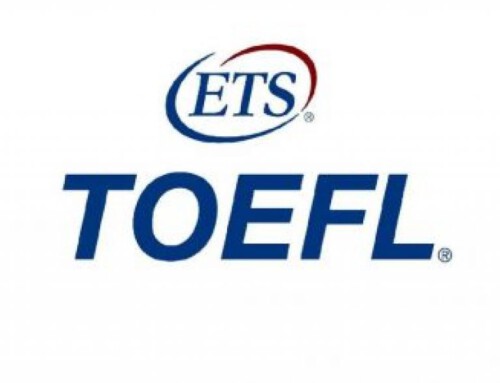ETS has announced a monumental overhaul of the TOEFL iBT exam, set to launch in January 2026. This transformation is arguably the most significant update to the English proficiency test in decades, introducing Adaptive Testing and an entirely new scoring system. For highly competitive MBA applicants, these enhancements promise a more efficient, relevant, and transparent way to demonstrate their language skills to top business school admissions committees.
Changes Announced in the TOEFL Exam
The core change is a complete redesign focused on modernization, efficiency, and alignment with real-world academic communication. The test will be dramatically shorter and far more personalized.
What are the Changes?
The New TOEFL Format will be defined by three key structural updates:
- Adaptive Testing: The Reading and Listening sections will adopt a multistage adaptive design. This means the difficulty of your questions will adjust in real-time based on your performance. This personalization allows the test to measure your true English proficiency level more accurately and in significantly less time, reducing the total duration of the entire exam to approximately 70–85 minutes (down from the current sub-2-hour test).
- New Task Types: Almost all sections will feature updated or entirely new tasks designed to be more relevant to modern academic life.
- Writing: New tasks include “Build a Sentence“ and “Write an Email,” which complement the current “Writing for an Academic Discussion” These changes emphasize practical, communication-focused writing over long, formal essays.
- Speaking: New, dynamic tasks like “Listen and Repeat” and “Take an Interview” better simulate the brief, high-stakes verbal interactions expected in an MBA program.
- Modern Content: The test content will shift away from niche or culturally specific academic subjects (like Greek mythology) toward more equitable, relatable topics that reflect contemporary campus life and group discussions.
How Scoring Would Change
Starting in January 2026, the TOEFL iBT will introduce an intuitive 1–6 banded score scale (with half-point increments).
This new scale is explicitly designed to align with the CEFR (Common European Framework of Reference for Languages), the most recognized international standard for language assessment. This alignment simplifies score interpretation for international universities. Importantly, for a two-year transition period, students will receive both the new CEFR-aligned score and a comparable score on the traditional 0–120 scale. Furthermore, the successful MyBest scores (superscoring) feature will continue to be reported.
It is important to note that most major MBA programs are currently in a “wait and watch” mode, evaluating how the new adaptive design and 1–6 scoring system unfold before releasing any definitive updated policies or minimum score requirements.
Why These Changes Were Done
ETS is committed to making the TOEFL a fairer and more accessible assessment. The move to an adaptive test and a shorter format reduces test-taker fatigue and increases efficiency. The alignment with the CEFR scale enhances global recognition and simplifies score use for business school and other academic institutions worldwide.
How This is Good for MBA Applicants
This transformation offers major strategic benefits for future MBA candidates:
- Maximum Efficiency: The drastically reduced test time means less disruption to your demanding GMAT/GRE preparation and professional work schedule.
- Skill Relevance: The new tasks, such as “Write an Email” and “Take an Interview,” are directly relevant to the daily communication required in a collaborative, fast-paced MBA curriculum.
- CEFR Transparency: The 1-6 score scale provides immediate, clear evidence of your language proficiency level to MBA admissions committees in Europe, the US, and Asia, making your application easier to evaluate.
Contact ARINGO MBA Admissions Consulting today for a free 30-minute profile evaluation and expert guidance on your application strategy.
Frequently Asked Questions (FAQs)
- When exactly will these major format and scoring changes come into effect? The new TOEFL iBT 2026 format, including the adaptive sections and 1-6 scoring scale, will come into effect on January 21, 2026.
- What if a student has already booked the current TOEFL exam for late 2025? Students taking the test before January 21, 2026, will take the current (shorter, post-July 2023) TOEFL format. These scores remain valid for two years and are accepted by all institutions.
- Will the preparation materials available today be useful for the new 2026 adaptive format? While the core English skills being tested remain the same (Reading, Listening, Speaking, Writing), the adaptive testing structure and new task types (“Write an Email,” “Build a Sentence,” etc.) mean that current practice materials will need to be supplemented with new resources specifically designed for the TOEFL iBT 2026 format.
- Will the traditional 0–120 score disappear immediately in 2026? No. For a two-year transition period after January 2026, students will receive both the new 1–6 banded score and a comparable score on the traditional 0–120 scale.
- How quickly will students receive their scores under the new TOEFL format? One of the key enhancements is faster score reporting. For the TOEFL iBT 2026 format, ETS aims to deliver official scores to students and institutions within 72 hours or less after the test, significantly speeding up the application timeline for MBA applicants.



